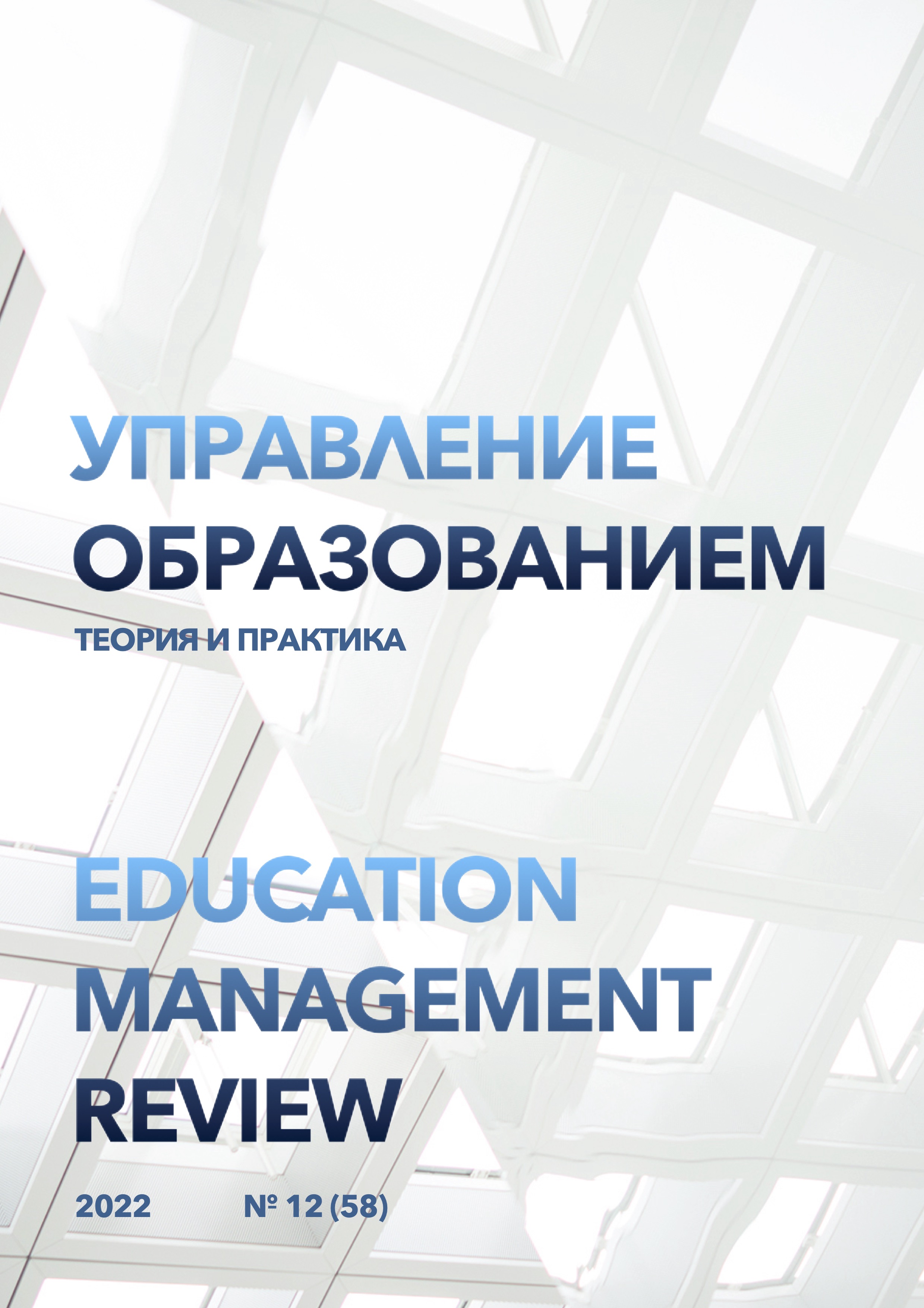The specifics of a safe multicultural educational space as a factor in the development of leadership qualities of older preschoolers
DOI:
https://doi.org/10.25726/m6498-7043-0145-pKeywords:
leadership qualities, preschoolers, educational space, developmentAbstract
The dynamics of the development of the international, European, and, accordingly, Russian educational space, the leading trends in the modernization of education, which consist in the formation of key life competencies and are aimed at the formation of a new generation capable of creating innovations and a new quality of life. The condition for the emergence and formation of highly intelligent, with a positive life position of individuals is not only hereditary or acquired human abilities, character traits, but also, above all, high-quality education, which is based on effective forms, methods and means of organizing the pedagogical process in educational institutions, ensuring the formation of an open society, and therefore sociable and self-confident personalities, starting from preschool childhood. Education of children of the first ten years of life as subjects of vital activity, capable of making their own choices, making independent decisions, trusting their own experience and capabilities, is one of the urgent tasks of the present. It is important to note that research is being conducted in Russian science, in which the problem of forming social confidence in older preschoolers has been clarified, which qualifies: the quality of a personality experiencing the stage of formation with the help of outdoor games; a component of the “I” image; the issue of comfortable socialization of preschool children in the context of group interaction has become the object of scientific works. Of particular scientific interest are scientific works in which the formation of self-confidence of older preschool children in group interaction is studied.
References
Батаева М., Журавлева И., Сахарова Т. Представления о концепции семьи у детей старшего дошкольного возраста // Основные Вопросы Педагогики и Психологии. 2021. № 19(1). С. 45-55.
Бурлачук Л.Ф. Словарь-справочник по психодиагностике. 3-е изд., перераб. и доп. СанктПетербург: Питер, 2008. 688 с.
Валявко С.М. Анализ формирования самооценки старших дошкольников // Системная психология и социология. 2016. № 4. С. 5-11.
Гафурова Т.Р., Курышева О.В., Курлина К.В. Влияние самооценки старших дошкольников на их межличностные отношения в группе // Личность, семья и общество: вопросы педагогики и психологии. 2016. № 64. С. 99-105.
Савенкова Т.Д. Совместная деятельность дошкольников со сверстниками и взрослыми как средство позитивной социализации. Вестник Тамбовского университета. 2020. Т. 25. № 186. 104-113 с. DOI 10.20310/18100201-2020-25-186-104-113.
Карпова С.И., Савенкова Т.Д. Модель развития социального интеллекта у старших дошкольников в процессе совместной деятельности // Вестник Тамбовского государственного университета. Серия Гуманитарные науки. 2019. Т. 24. № 183. С. 128-136. DOI 10.20310/1810-0201-2019-24-183-128-136.
Кузина О.А. Российская психолингвистика: итоги и перспективы (1966–2021): Коллективная монография. / Научн. ред. И.А. Стернин, Н.В. Уфимцева, Е.Ю. Мягкова. М.: Институт языкознания – ММА, 2021. 626 с.
Кузина О.А., Романова Т.А., Чунова В.Л. Теоретико-образовательные подходы и стандарты управления чрезвычайными ситуациями в США, Великобритании, Австралии и ОАЭ // Управление образованием: теория и практика. 2021. №5. С. 10-16.
Шиленкова Л.Н. Самоэффективность в образовательном процессе (обзор зарубежных исследований) / Электронный журнал Современная зарубежная психология. Москва. 2020. Т. 9. № 3. С. 69-78. DOI: https://doi.org/10.17759/jmfp.2020090306.
Bailey D., Hufford M., Emmerson M., Eckert S. Identifying and living leadership in the lives of prekinder-garten through 4th-grade girls: the story of one intentional leadership identity development program // Journal of Research in Childhood Education. 2017. Vol. 31. P. 487-507.
Fang Y., Grieken A., Fierloos I., Windhorst D., Jonkman H., Hosman C., Crone M., Jansen W., Raat H. Parental, child and socio-contextual factors associated with parenting self-efcacy among parents of children aged 0-7 years old: the CIKEO study. Social Psychiatry and Psychiatric Epidemiology. 2021. https://doi.org/10.1007/s00127-021-02161-2.
Farrington N. Collective Efficacy across Multiple Elementary Schools Northwestern College, Iowa NWCommons Master's Theses & Capstone Projects Education. 2021. 28 p. Dockrell J., Lindsay G., Letchford B. Self esteem of children with specific speech and language difficulties // Child Language Teaching and Therapy. 2002. Vol. 18. № 2. P. 125-143.




